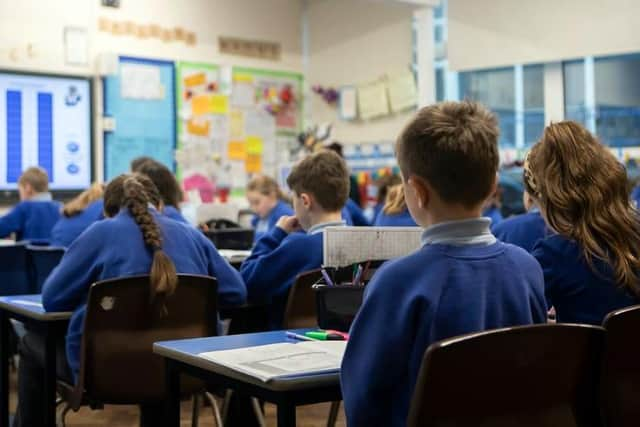Notts parents more likely to win school place appeals
and live on Freeview channel 276
With children about to start the new school year, Department for Education data for last year shows a wide variation in school admission appeal success rates between local authorities across England.
In Nottinghamshire, parents took 714 cases against their child’s school placement for the 2020-21 academic year to an appeal hearing, with 246 successful – a win rate of 35 per cent.
Advertisement
Hide AdAdvertisement
Hide AdThe success rate was up from the year before, when it was 27 per cent, and far higher than the national average of 19 per cent.


In contrast, the appeal success rate was just 3 per cent in Kensington and Chelsea, in London, and 5 per cent in Solihull in the West Midlands.
Karen Hughman, Nottinghamshire Council group manager for school improvement, strategic planning and admissions, said: “The council continues to review school projections to ensure a sufficiency of places in planning areas and over the last three years, Nottinghamshire residents offered their first preference averaged 93 per cent for first admission and 91 per cent for primary to secondary transfer.
“Some schools are popular and will attract a high number of applications leading to oversubscription.
Advertisement
Hide AdAdvertisement
Hide Ad“In cases where applications are unsuccessful, parents have the right of appeal. A successful appeal is dependent on a number of factors including the situation with the school and the circumstances of the individual child.
“There are different types of appeal for primary age pupils including infant class size appeals, of which less than 5 per cent are successful in a typical year.
“The number of successful appeals overall can vary each year depending on local circumstances and the popularity of a school.
“Appeals have continued throughout the lockdown period and the council is more appreciative than ever of the efforts of the panel members who voluntarily undertake this role in a professional, informed and inclusive manner.”
Advertisement
Hide AdAdvertisement
Hide AdTraining and advice
Matt Richards, founder of law firm schoolappeals.com, said the urban landscape of an area could be a factor in the variation in success rates.
He said cases in urbanised areas of London were more likely to feature parents simply wanting their child to be placed in a better school, but in rural areas with schools more than five miles apart, it could be down to logistical reasons.
But he said: “It can also be down to the training and advice given to independent panel members which they stick to for their decisions.”
Schools follow the Government's admission code when deciding which pupils to allocate places to each year.
Advertisement
Hide AdAdvertisement
Hide AdWhen a parent is unhappy about an allocation, such as not achieving their first-place preference, an appeal can be submitted to the school's admissions authority.
That can go to an independent appeal panel which then assesses whether the school was right to turn down the application.
In Nottinghamshire, 92 per cent of pupil applicants were offered a first-choice school place last year.
The number of appeals heard equated to 3.2 per cent of all admissions, up from 2.8 per cent the previous year.
